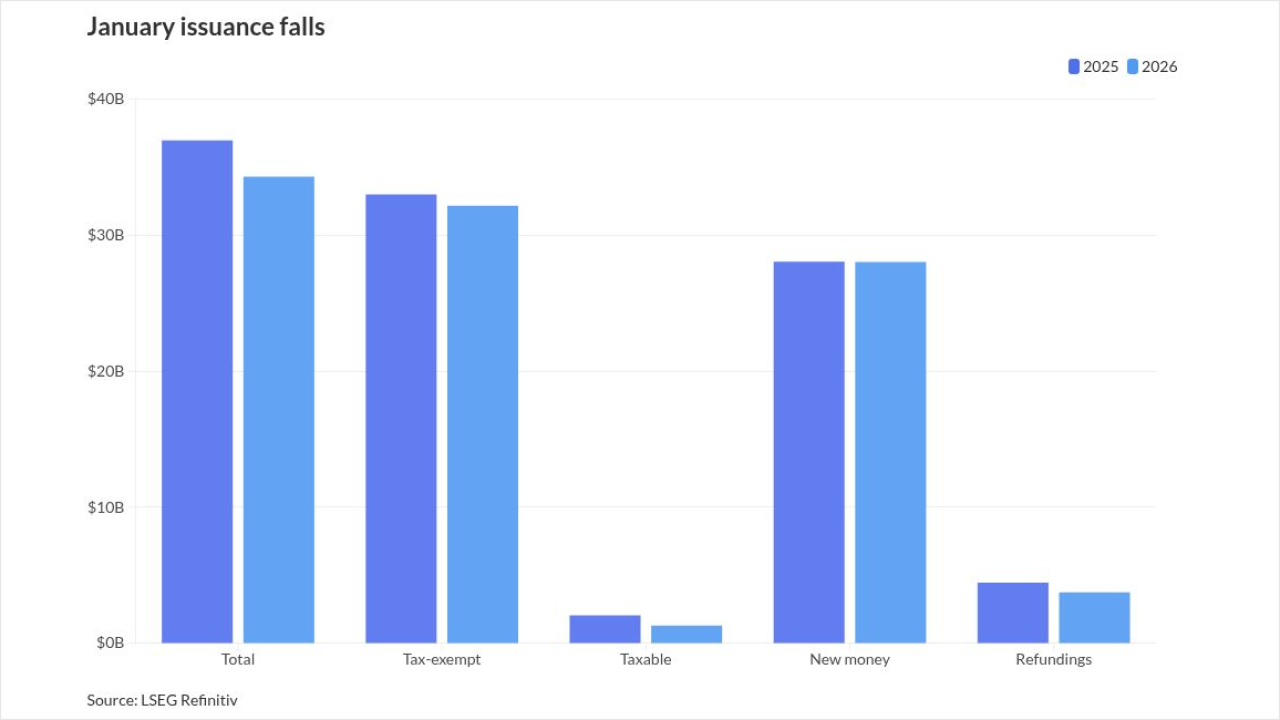The tax-exempt market received new issues extremely well this week as most traders noted deals were oversubscribed and cash on the sidelines continues to support the market.
While yields did rise a few basis points, they are still hovering near their record lows.
"The muni market tone remains rudderless," said Dan Toboja, vice president at Ziegler Capital Markets. "Volume in the market has slowed and now we've reached a point of stability. While most participants don't believe the current rates will continue, cash still needs to be put to work."
He added the primary was received well this week. "The strategy for many has been selective new issues purchases. The deals this week were all well subscribed and successfully placed."
"Spreads for yield have tightened and customers are willing to buy bonds - even lower-rated - on yield to call basis," he said. "Five percent coupons have come into considerable demand while the $110-plus dollar prices are still not historically friendly to retail investors."
In the competitive market, the Kansas Department of Transportation is expected to auction $200 million of revenue bonds.
The Massachusetts State College Building Authority is expected to sell $155.3 million of revenue bonds, rated Aa2 by Moody's and A-plus by Standard & Poor's.
On Wednesday, the Municipal Market Data scale ended steady for the second consecutive trading session. The 10-year yield finished flat at 1.48%, one basis point above the 1.47% record low set Nov. 28. The 30-year yield ended unchanged at 2.48%, dangling above its record low of 2.47% set Nov. 28. The two-year finished flat at 0.30% for the 48th consecutive trading session.
Treasuries were stronger Thursday morning. The benchmark 10-year yield and the 30-year yield fell three basis points each to 1.57% and 2.76%, respectively. The two-year yield dropped one basis point to 0.24%.
In economic news, initial jobless claims fell 25,000 to 370,000 for the week ending Dec. 1, a third consecutive weekly decline. Economists expected 375,000 claims.
"Initial jobless claims have returned to pre-Sandy levels and the four-week average of claims should trend lower in the weeks ahead," wrote economists at RDQ Economics. "However, the turn of the year is often a period of greater-than-usual volatility in initial claims due to seasonal adjustment issues and the claims data may reflect more noise and less signal in the coming weeks."





